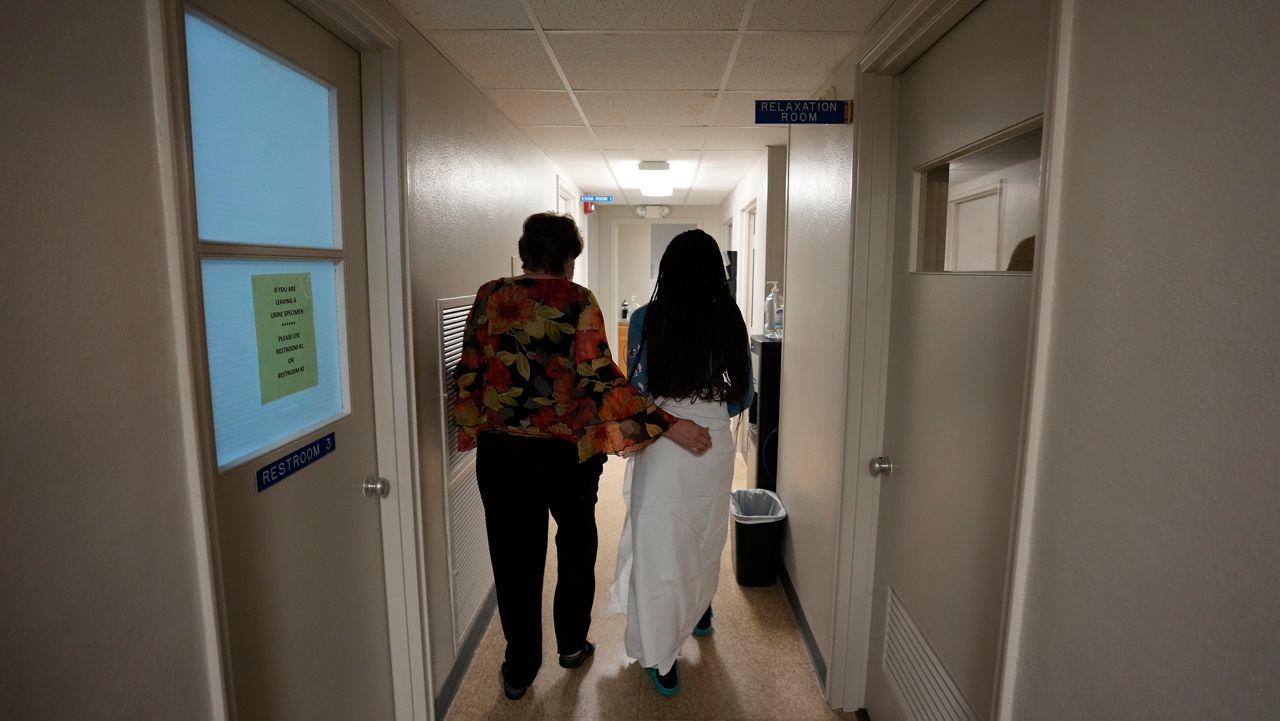AUSTIN, Texas — Senate Bill 8, also known as the Heartbeat Act, has prompted the largest documented decrease in abortions in Texas, a new study from University of Texas at Austin researchers states.
According to the study, published by the Texas Policy Evaluation Project, abortions in Texas were down 50% in September 2021 compared to September 2020.
“Overall, 2,164 abortions were provided in September 2021 and 4,313 in September 2020, a 49.8% decrease,” the study says.
That was the intent of the bill’s backers and author. SB8 bans abortion in Texas once fetal cardiac activity can be detected, which is frequently as soon as six weeks into pregnancy and before most women know they are pregnant.
In addition, the study notes, there were 5,377 clinical abortions performed in Texas in August 2021, before the law went into effect.
“Over 40% of people seeking abortion care do not contact a Texas facility until after 6 weeks of pregnancy. Some of those who called for an appointment after September 1, 2021 were likely told they were ineligible for care based on the date of their last menstrual period, and others were turned away after an ultrasound showed embryonic cardiac activity,” the study says. “Additionally, people who were aware of SB8 may have expected that they would not be able to obtain an abortion in Texas after September 1, 2021, and therefore did not try to obtain in-state care at all.”
Researchers note that the law has additionally created an uptick in women seeking abortions in neighboring states including New Mexico, Oklahoma, Louisiana and Arkansas.
In preparing the study, researchers analyzed data from 19 of the state’s 24 abortion providers, which provide about 93% of abortions in Texas.
On Monday, Nov. 1, the U.S. Supreme Court will hear challenges to the law.
The Texas law was written to evade early federal court review by putting enforcement of it into the hands of private citizens instead of than state officials.
The court will consider this question: "May the United States bring suit in federal court and obtain injunctive or declaratory relief against the State, state court judges, state court clerks, other state officials, or all private parties to prohibit S.B. 8 from being enforced."
The high court will hear two challenges to the restrictive abortion law: One from the Department of Justice and another brought by abortion providers.
